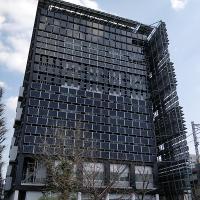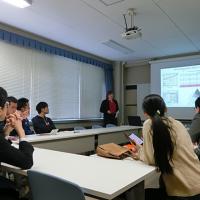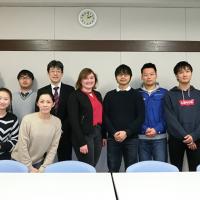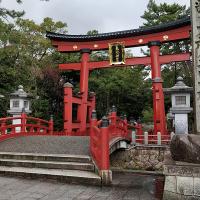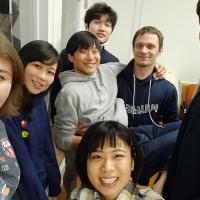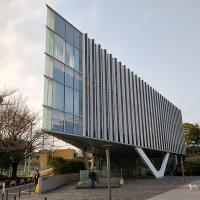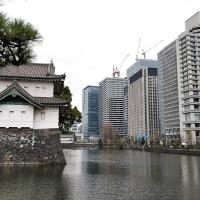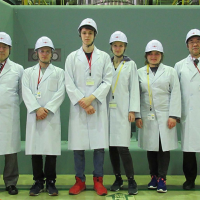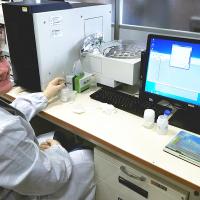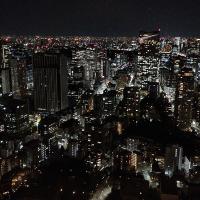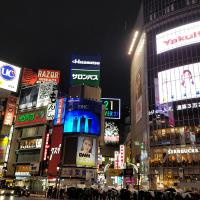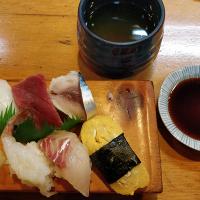Within the framework of the five-year cooperation program, MEPhI and Tokyo Institute of Technology exchange students for short-term internships in the field of "Nuclear technology". The first such trip took place last year, and in March of this year the second group of students went to Japan. One of them, a second year student of master's degree in "Materials science and technology of materials" Maria Zaripova spoke about her impressions and new experiences.
— Tell me, what lab were you in and what were you doing during the internship?
— I spent these two weeks in the laboratory of Kobayashi Sensei, which means Professor Kobayashi. They call all professors "Sensei". For us, sometimes "Professor" is something purely formal, and for them it is a teacher, a mentor.
During my internship, I studied thermodynamics of interaction between cesium oxide and silicon oxide. Cesium was one of the main radioactive elements that was released into the environment during the Fukushima-1 accident. Scientists who analysed the composition of the soil 20 km north-west of the nuclear power plant, found that about 80% of these particles just consist of silicon oxides and cesium. Currently, there are not enough thermodynamic data for them in scientific articles. So I conducted a long experiment: during four days we kept special powders in the oven, then two days dissolved them in acids to conduct elemental analysis, in the end, all the work took a week and a half. But I got a certain result. Of course, it was one result out of hundreds of others that they should get, but it will still be useful in the future.
— Why did you choose this direction of research?
— In fact, in MEPhI I am engaged in a completely different topic, but I was interested to know what they are studying, to see what equipment they have, what research methods they own. In our laboratories there is such a problem that we need to do something, for example, to learn the elemental composition, but there is not enough equipment. You have to go to other laboratories or even to third-party organizations, but it takes a lot of time and requires extra money. I thought the Japanese had everything they wanted, but they didn't. They introduced me to the head of another laboratory in Korea, with whom they have been cooperating for fifteen years. They study the thermodynamics of different systems, and that laboratory studies the mechanical properties. And everything happens just like we do: someone does one thing, someone another, and then they create a collaboration, exchange data and use it.
— Did you get a scholarship during the internship or did you pay all the expenses?
— Japanese University awarded us a scholarship for the duration of our stay in Tokyo and paid for all expenses, including plane tickets and hotel accommodation. In Japanese universities, there are student dormitories, but it is for mostly those who come for a long time, and they decided to organize accommodation in the hotel. Therefore, we had to take the subway to get to the University, and transport in Japan is very expensive. Different branches in the subway belong to different companies and the fare depends on where and how you go. By the way, the subway is mostly above-ground, and due to the lack of space sometimes it is half a meter from the tracks to the following buildings.
— What are the differences between Japanese and Russian universities?
— The main difference is that students in Japan are treated more respectfully. In Russia sometimes they are neglected, and there teachers always try to motivate, to encourage. I was surprised that they have a very international team. I thought it would be mostly Japanese, but I worked with guys from Indonesia, China, Korea, and there were only three Japanese in our lab. One of the problems in Japan now is the rapidly aging population, so they attract talented students from all over the world, pay scholarships, all programs in graduate school are done only in English.
They don’t have such a pass entry system in University as in MEPhI. When we arrived, we were given special cards that open the doors if you come to the laboratory before eight or leave later than six. All the doors are open, there are no strict restrictions. But they do not have a reactor on the territory of the University, as it is in MEPhI.
— Did you have any difficulties in communicating with the Japanese?
— In general, it was inconvenient that not everywhere information is in English, not all inscriptions are translated. Sometimes you can come to the store or restaurant and no one there will understand you. Many people speak English, but the Japanese have a different pronunciation, you have to adjust to understand the accent. Sometimes there were difficulties with it, although it is all solvable. The Japanese are very friendly and always ready to help, even if they do not really understand what you need.
— What are your impressions of this country?
— This trip has destroyed some stereotypes. For example, it was found that not all Japanese are anime fans. In Tokyo, there are areas where you can meet cosplayers, dressed up people, but it's not everywhere. Most of the Japanese look the same, all in suits, because they work in offices. Everyone is very nice, kind, always smiling. I like that they're so respectful of each other. Also they have very high quality, delicious food.
In addition to the internship itself, we managed to visit many attractions and several cities closest to Tokyo. We were organized a tour of the nuclear power plant in Tsuruga (Fukui), which showed 2 types of reactors: PWR and BWR. We moved there-back by a high-speed train with a beautiful name Shinkansen, from the window of which was visible Fujiyama. All this helped to consider the country from different sides. It is completely different. Very lively, modern, high-tech on the one hand, and gentle, calm, blooming — on the other one.
Japan won my heart, I really want to go back there again, but I don’t want to live there. Tokyo's great, but it's a long way from home. I attended one of their seminars, where they show their presentations, and then sit down and discuss them together. I was told, "Sorry, we're comfortable doing this in Japanese." And I spent an hour and a half listening to people communicate in Japanese. Although they have an international team, everyone spoke Japanese except me. Because of these things you do not want to stay there for a long time.
— If there is such an opportunity, will you go to the internship again?
— I plan to go to postgraduate study and I hope I will have the opportunity to do the internship, but now I would like to go to another place, for example, somewhere in Europe.





